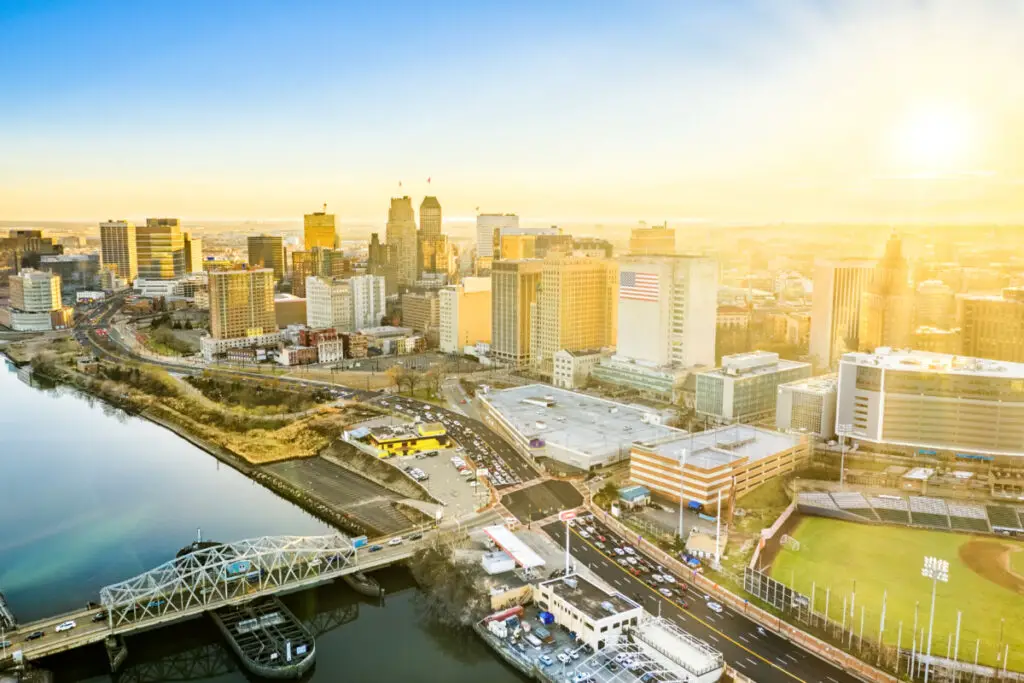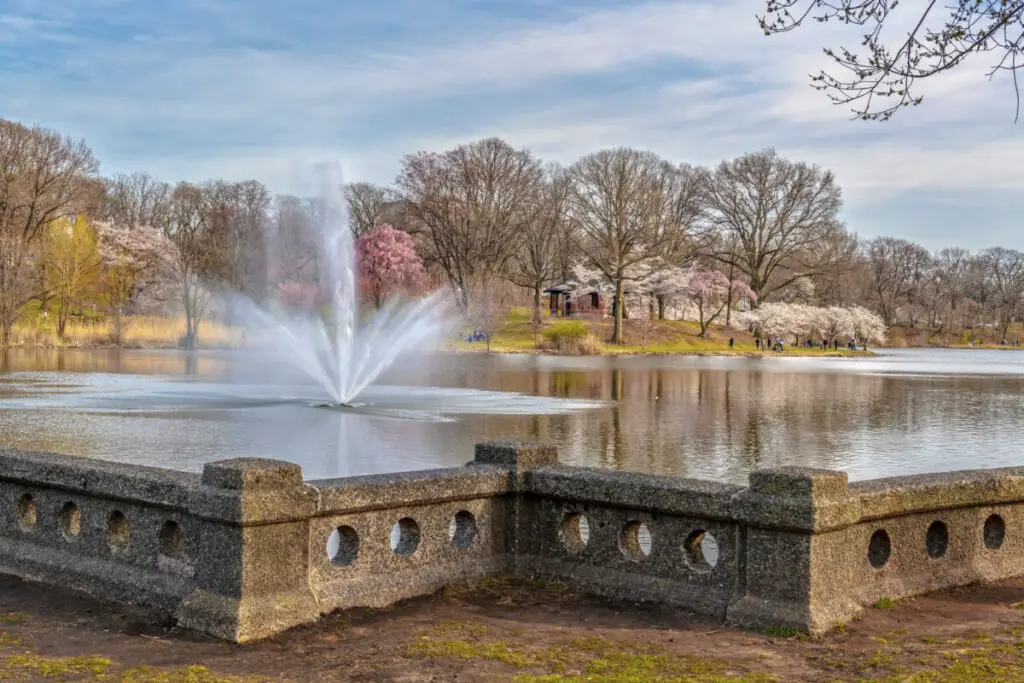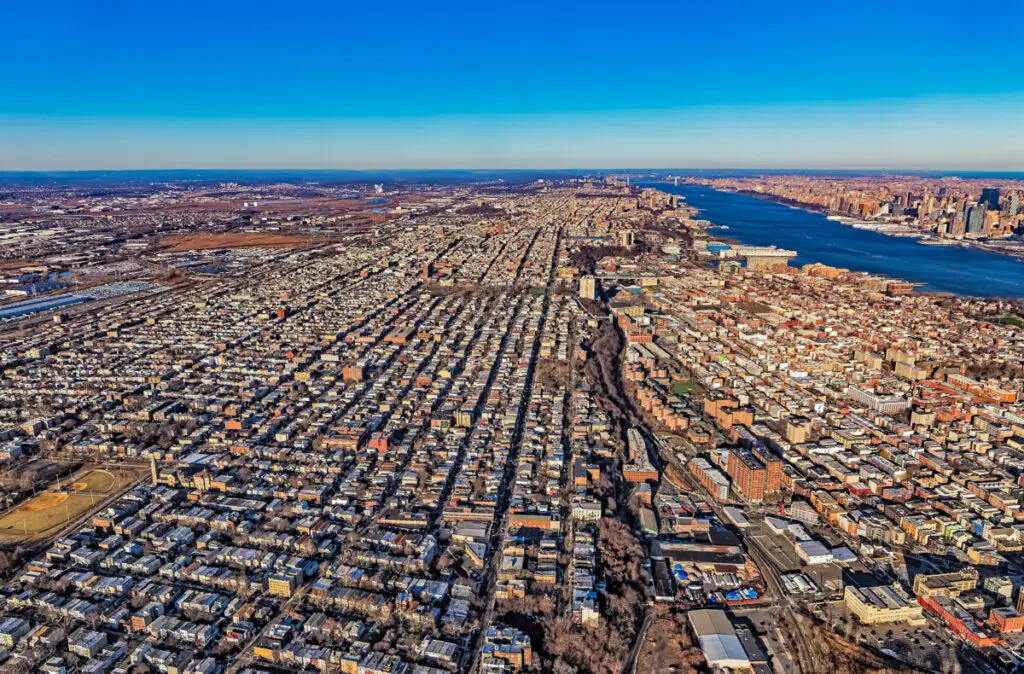
Politics is a source of controversy these days, and many people want to know that those around them have similar political beliefs to theirs. Are the residents of Newark, New Jersey more likely to be liberal or conservative?
Newark, New Jersey is a very liberal city. The residents voted for the Democratic candidates in all six presidential elections that have taken place since 2000. Essex County, Newark’s county, is also very liberal, and the state of New Jersey is moderately liberal.
There are many factors to the political climate of a city. Looking at the results of presidential elections, local leaders, supported policies, and demographics of Newark can help us to know if it is mostly liberal or conservative.
Presidential Elections
The results of presidential elections in a city are a big indicator of the political climate. The two major political parties in the United States, the Democratic party and the Republican party, represent the liberal and conservative perspectives. The majority of members of the Democratic party are liberal, and the party supports liberal policies. This means that if the majority of residents in a city vote for the Democratic candidate, the city is mostly liberal. The majority of members of the Republican party are conservative, and the party supports conservative policies. If the majority of residents vote for the Republican candidate, the city is mostly conservative.
It is important to not only look at the candidate that got the most votes in Newark but by how much they won. In every election, a certain percentage of the vote is for the Democratic candidate and another percentage is for the Republican candidate. The difference between these percentages is the number of votes that the winning candidate won by. If the difference is high, that means that many more people supported the winning candidate over the other candidate, meaning that the city is solidly liberal or conservative. If the difference is low, the city is closer to being evenly split between liberal and conservative.
New Jersey is a moderately liberal state. The majority of residents voted for the Democratic candidate in every election since 2000. The difference between the percentage of Democratic and Republican votes was close to 15% in every election except for the 2004 election. The highest difference was 17.8% in 2012, and the lowest difference was 6.7% in 2004.
state. The majority of residents voted for the Democratic candidate in every election since 2000. The difference between the percentage of Democratic and Republican votes was close to 15% in every election except for the 2004 election. The highest difference was 17.8% in 2012, and the lowest difference was 6.7% in 2004.
In the 2020 presidential election, 57.3% of the population of New Jersey voted for the Democratic candidate, and 41.4% voted for the Republican candidate. The difference between the percentages was 15.9%, which is the second highest after 2012.
Essex County, the county that Newark is in, is a very liberal area. The Democratic candidate has won in this county in every election since 2000. The difference between the percentages of Democratic and Republican votes was between 40% and 60% in each of those elections. The highest difference was 56.78% in 2016, and the lowest difference was 41.58% in 2004. The extremely high differences show that the county is definitely more liberal than conservative, and that isn’t going to change anytime soon.
area. The Democratic candidate has won in this county in every election since 2000. The difference between the percentages of Democratic and Republican votes was between 40% and 60% in each of those elections. The highest difference was 56.78% in 2016, and the lowest difference was 41.58% in 2004. The extremely high differences show that the county is definitely more liberal than conservative, and that isn’t going to change anytime soon.
In the 2020 election, 77.07% of Essex County residents voted for the Democratic candidate and 21.8% voted for the Republican candidate. The difference was 55.27%, the third highest after 2016 and 2012.
Newark, like its county and state, is mostly liberal . The majority of residents in the city voted for the Democratic candidate in all six of the elections since 2000. In each of these elections, the difference between the percentages was higher than 10%. The differences and percentages are comparable to those of Essex County.
. The majority of residents in the city voted for the Democratic candidate in all six of the elections since 2000. In each of these elections, the difference between the percentages was higher than 10%. The differences and percentages are comparable to those of Essex County.
From 2018 to 2021, there were 5,156 contributions to the Democratic party in Newark, totaling $800,106. There were only 467 contributions to the Republican party in Newark during that time, totaling $185,102. The contributions to the Republican party were about 2.5 times larger on average than those to the Democratic party.
Local Leaders

The local leaders of a city represent the political climate. Local leaders are elected by the city as a whole based on their beliefs and promises. We need to look at the enacted policies, campaign platforms, and party affiliations of the local leaders of Newark to get an idea of whether it is liberal or conservative.
Mayor
The mayor of Newark is one of the most important elected officials in the city. The mayor is the executive of the city and represents it in state, national, and international matters. The mayor is responsible for creating a budget, signing legislation, and appointing many city employees.
The current mayor of Newark is Ras Baraka . He was elected in 2014 and reelected in 2018 and 2022. In 2014, he was elected with 54.1% of the vote, winning by 3,765 votes. In 2018, he was elected with 77% of the vote, winning by 15,584 votes. In 2022, he won with 82.8% of the vote, winning by 10,345 votes. The high number of votes that he won in his re-elections shows that the people were extremely supportive of what he has achieved while in office.
. He was elected in 2014 and reelected in 2018 and 2022. In 2014, he was elected with 54.1% of the vote, winning by 3,765 votes. In 2018, he was elected with 77% of the vote, winning by 15,584 votes. In 2022, he won with 82.8% of the vote, winning by 10,345 votes. The high number of votes that he won in his re-elections shows that the people were extremely supportive of what he has achieved while in office.
During his time in office, Mayor Baraka has focused on increasing job opportunities, increasing the use of technology in government, reducing crime, and increasing available and affordable housing.
Mayoral elections in Newark are nonpartisan, so Mayor Baraka is technically not a member of a political party. However, he has been known to be affiliated with the Democratic party. Interestingly, his focuses in the office on economics show more of a conservative lean than most of the members of the Democratic party.
City Council
The Newark City Council is a board of elected officials that is the legislative body in the city. The city council is responsible for accepting the budget, imposing taxes, and creating or changing city laws. There are nine city council members. Four of them are elected by the city as a whole, while the other five are each elected by one of the city’s five wards.
is a board of elected officials that is the legislative body in the city. The city council is responsible for accepting the budget, imposing taxes, and creating or changing city laws. There are nine city council members. Four of them are elected by the city as a whole, while the other five are each elected by one of the city’s five wards.
All city council members are considered nonpartisan. However, the goals and enacted policies of the current city council suggest that the majority of members have a liberal perspective.
Policies
The policies that residents in the city support are another indicator of the political climate. There are certain policies that are more likely to be supported or opposed by liberals or conservatives. Fewer abortion restrictions, more gun control laws, and legal same-sex marriage are all most likely to be supported by liberals and opposed by conservatives.
Abortions
New Jersey has no major abortion restrictions . Abortion is legal in all stages of pregnancy. The state does not require counseling or ultrasounds to be done before an abortion can be provided. Private insurance policies, insurance policies for public employees, health plans, and public funding can all legally cover abortions. Parents of a minor are not required to consent or be notified before an abortion can be given to that minor.
. Abortion is legal in all stages of pregnancy. The state does not require counseling or ultrasounds to be done before an abortion can be provided. Private insurance policies, insurance policies for public employees, health plans, and public funding can all legally cover abortions. Parents of a minor are not required to consent or be notified before an abortion can be given to that minor.
In 2017, there were 76 facilities providing abortion in New Jersey, 41 of which were clinics. 33% of New Jersey counties do not have a clinic, leaving 26% of women without access to an abortion clinic.
Newark residents tend to support the low amount of abortion restrictions, which is consistent with a liberal perspective.
Gun Control Laws
New Jersey had the third-lowest gun death rate in 2020 and the second-lowest crime gun export rate. New Jersey gun laws include universal background checks, gun owner licensing, domestic violence gun laws, assault weapon and large capacity magazine restrictions, concealed and open carry regulations, child access prevention laws, and a ghost gun ban. New Jersey gun laws do not include microstamping requirements, handgun design safety standards, or safe storage laws.
universal background checks, gun owner licensing, domestic violence gun laws, assault weapon and large capacity magazine restrictions, concealed and open carry regulations, child access prevention laws, and a ghost gun ban. New Jersey gun laws do not include microstamping requirements, handgun design safety standards, or safe storage laws.
Newark residents tend to support the high number of gun control laws, which is consistent with a liberal perspective.
Same-Sex Marriage
New Jersey legalized same-sex marriage on October 21, 2013 , and was the 14th state to do so. This was a little less than two years before the Supreme Court mandate was passed requiring all states to legalize same-sex marriage. Newark residents generally supported the legalization of same-sex marriage.
, and was the 14th state to do so. This was a little less than two years before the Supreme Court mandate was passed requiring all states to legalize same-sex marriage. Newark residents generally supported the legalization of same-sex marriage.
Demographics

The population of Newark is about 282,520 people, and the population density is 11,701 people per square mile. 50.6% of Newark residents are female and 49.4% are male. The median age is 32.1 and the average number of people per household is 2.9.
of Newark is about 282,520 people, and the population density is 11,701 people per square mile. 50.6% of Newark residents are female and 49.4% are male. The median age is 32.1 and the average number of people per household is 2.9.
The racial makeup of Newark is as follows:
of Newark is as follows:
- White: 10.7%
- Black: 48.3%
- Hispanic/Latino: 36.4%
- Asian: 1.7%
- Native American: 0.3%
- Hawaiian/Pacific Islander: 0.0%
- Two or More Races: 0.7%
- Other: 1.8%
The average income in Newark is $16,828 per year, and the median household income is $34,012. The unemployment rate is 13.0%. The sales tax rate is 6.6%, and the income tax rate is 5.5%.
in Newark is $16,828 per year, and the median household income is $34,012. The unemployment rate is 13.0%. The sales tax rate is 6.6%, and the income tax rate is 5.5%.
74% of Newark residents are high school graduates and 18.8% are only high school graduates. 10.3% of residents have two-year degrees, 14.4% have four-year degrees, 0.7% have master’s degrees, and 0.5% have professional degrees.
of Newark residents are high school graduates and 18.8% are only high school graduates. 10.3% of residents have two-year degrees, 14.4% have four-year degrees, 0.7% have master’s degrees, and 0.5% have professional degrees.
56.9% of residents are religious. 49.5% are Christian, 3.0% are Jewish, 1.2% are of the eastern faith, and 3.0% are affiliated with Islam.
of residents are religious. 49.5% are Christian, 3.0% are Jewish, 1.2% are of the eastern faith, and 3.0% are affiliated with Islam.
The rate of violent crime in Newark on a scale of 1 to 100 is 52.0. The rate of property crime on the same scale is 39.4. Both are higher than the national average.
